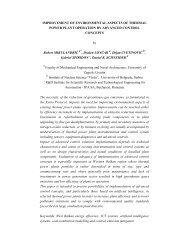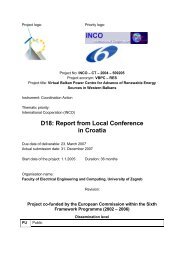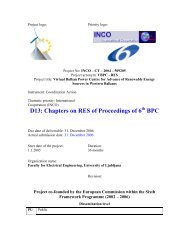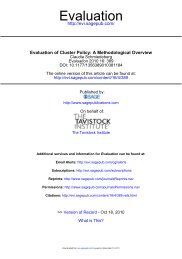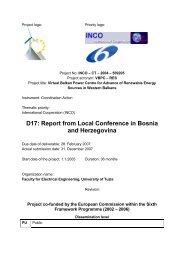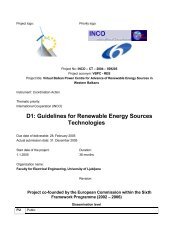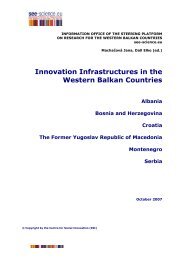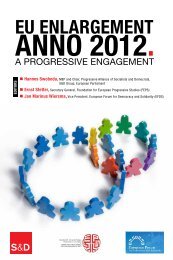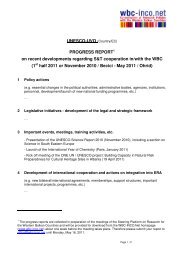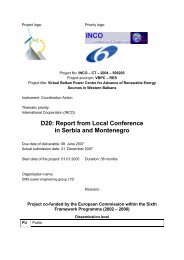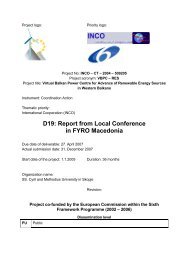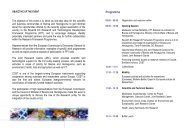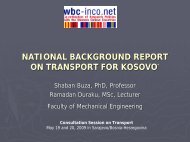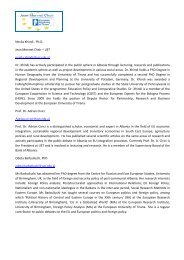Catalogue of Research Groups from Moldova - WBC-INCO Net
Catalogue of Research Groups from Moldova - WBC-INCO Net
Catalogue of Research Groups from Moldova - WBC-INCO Net
Create successful ePaper yourself
Turn your PDF publications into a flip-book with our unique Google optimized e-Paper software.
SEVENTH FRAMEWORK<br />
PROGRAMME<br />
SCIENTIFIC LABORATORY OF ENVIRONMENTAL HEALTH<br />
Organization activity type : RES<br />
FP7 theme : hEalTh<br />
Contact person : Pr<strong>of</strong>. Grigory Friptuleac<br />
Address : National Centre for Public Health<br />
67 A, Gh. Asachi street<br />
MD 2028, Chisinau<br />
Republic <strong>of</strong> <strong>Moldova</strong><br />
E-mail : gr.friptuleac@rambler.ru, nehap@cnsp.md<br />
Web : http : //www.cnsp.md<br />
56<br />
NATIONAL CENTRE FOR PUBLIC HEALTH<br />
BRIEf dESCRIpTIon <strong>of</strong> ThE oRganIzaTIon<br />
The Scientific Laboratory <strong>of</strong> Environmental Health is accredited to carry out scientific and practical<br />
research in the National Centre for Public Health in the sphere <strong>of</strong> hygiene.<br />
There are 10 people working in the laboratory (1PhD, 4 scientists, 3 superior laboratory assistants, and<br />
2 laboratory assistants).<br />
Over the past five years the laboratory has conducted 5 institutional projects at the state and economic<br />
agents’ request. The research aim consisted in evaluating the population’s health in relation to the<br />
environmental (water quality, air, nutrition) and social factors; and risk assessment <strong>of</strong> the influence <strong>of</strong><br />
environmental factors on population’s health and especially on children.<br />
KEywoRdS on CoRE CompETEnCIES<br />
Hygiene; environmental health; risk; prevention.<br />
ExpERTISE / CompETEnCIES / TEChnologIES / RTd Know-how<br />
The laboratory determines the general and overall indicators in drinkable and surface water, as well as the<br />
level <strong>of</strong> pollution in waste waters, air, soil and biological environments.<br />
The laboratory uses the following research methods : hygienic, epidemiological, sanitary and chemical<br />
(photocolorimetry, titration, ionometry, spectrophotometric analysis, gravimetry), statistical<br />
(determination <strong>of</strong> linear correlation coefficient, regression, risk determination), and anthropometry.



